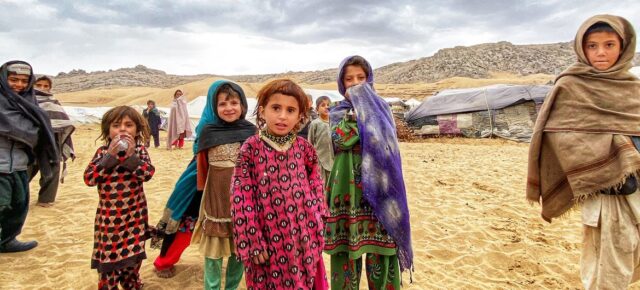Millions of Afghans have become internally displaced amid the growing humanitarian crisis in Afghanistan. After the Taliban took control of Afghanistan in mid-august this year, millions of Afghans have been internally displaced, and thousands have left the country giving rise to a growing humanitarian crisis. The regime change has severely affected the private sector as a large majority of local enterprises and international organizations remain closed since the Taliban’s takeover. This has led to a worse economic situation with no international support and connectivity, resulting in an extremely difficult situation for ordinary people. Also, the public sector has been partially paralyzed due to the absence of trade and regional connectivity. Afghan traders have faced unnecessary delays in reaching agriculture products to the regional markets due to several reasons.
According to the United Nations (UN) reports the hospitals have been overflowing, medical supplies are dwindling and critical infrastructure has been damaged or destroyed. Essential food supplies in many cities have run short. The largest employer in the country, the Afghan National Defence and Security Forces have been dissolved. Salaries for other state employees cannot be paid because of international asset freezes.
As reported last year by Crisis Group, Covid-19 have had a devastating impact. It is believed to have infected millions and it helped drive an increase in the poverty level from 38 per cent in 2011 to an estimated 47 per cent in 2020. As per UN reports, at the beginning of 2021, as many as 14 million people did not have sufficient food, meaning that more than one-third of the population of roughly 38 million was going hungry. Food insecurity is a huge problem
The lack of international connectivity, regional trade and foreign investment has led to the worst scenarios as starvation has already hit the country due to unemployment, internal displacement, COVID-19, and drought. Further, the neighbouring countries have closed their borders to avoid refugee’s intake. There is an immediate need for finical assistance to the people of this country.









